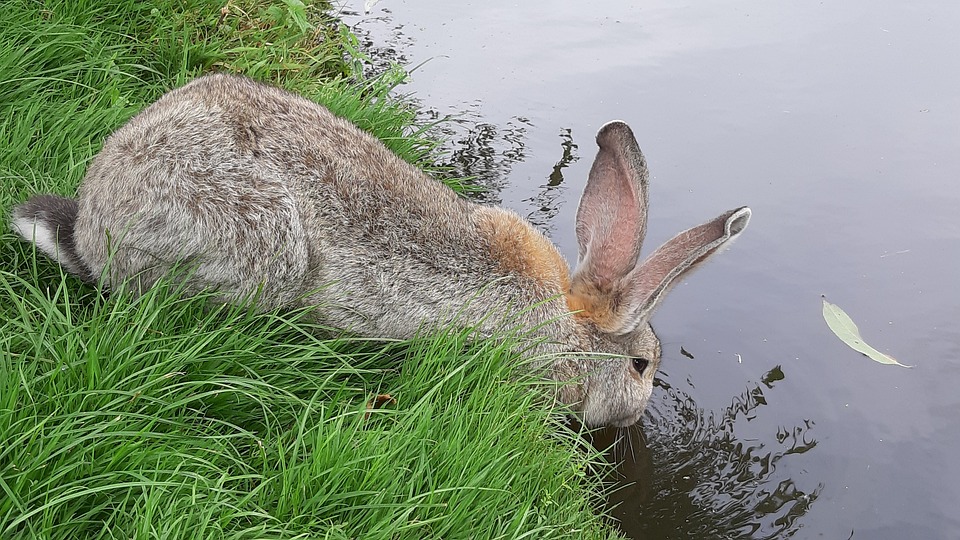
Water is the often forgotten, but very important nutrient for many animals, including rabbits. Just like us, a rabbit’s body is made up of ~ 60% water.
Did you know that a 2kg rabbit drinks as much as a 10kg dog?! Rabbits have a few unique anatomic and physiologic features that require them to consume a lot of water:
- Rabbits are hindgut fermenters with a large gastrointestinal tract requiring a high-fibre diet, and water is essential for the digestive process to occur. They constantly produce saliva and there is a constant exchange of water across the intestines, requiring intake of water to ensure the intestinal contents are hydrated.
- Rabbit kidneys have a limited ability to concentrate urine, which means they produce a larger amount of urine compared to some other animals. The average urine output for a rabbit is 130mL/kg/day, but this can range from 20mL/kg/day to 250mL/kg/day.
Fresh clean water should always be available from an open bowl. Sipper bottles have been traditionally used for rabbits, however, rabbits prefer drinking from a bowl and can drink 3-4 times faster.
The average water intake for a rabbit is ~ 120mL/kg/day, however, this can vary and can be higher or lower. A significant increase in water intake can occur due to:
- Rabbit being kept at a warm ambient temperature
- Food deprivation
- Lactation
It is possible that newly rescued rabbits did not have access to an appropriate diet or sufficient water prior to rescue, and their water intake may be significantly higher when given access to a readily available water source and appropriate food.
The type of diet also affects water intake in rabbits:
- Rabbits fed a high-fibre, high-protein or high-calcium diet drink more water.
- Rabbits fed a dry diet, such as hay, need to drink more water to hydrate the hay for digestion.
- Rabbits fed a diet high in fresh grass and other fresh succulent plants, including leafy greens, will drink less water than those on a dry diet. Wild rabbits get a lot of their water from fresh grass.
- Rabbits fed grain-type mixes (which are not appropriate) drink less water.
Water intake can be altered in certain disease states. An increase in water intake can occur due to dental disease, kidney disease, liver disease, gastrointestinal disease, and any disease process that results in dehydration. Affected rabbits may not eat, may have a reduced appetite and/or may be lethargic. Chronically affected rabbits may be losing weight or may be in poor body condition.
Key points:
- Offer water from an open bowl (such as a heavy ceramic bowl that can’t be tipped over).
- A SIPPER BOTTLE SHOULD NOT BE THE SOLE WATER SOURCE.
- Ensure water is always available.
- NEVER DEPRIVE A RABBIT OF WATER.
- Measure and record daily water intake.
- If the rabbit’s appetite is reduced, they are lethargic, losing weight or if you have any concerns about the well-being of the rabbit in your care, have them checked by a rabbit vet.
© 2024 Avian & Exotics Service
Disclaimer - The information included here is of a general nature designed for education purposes and is not a replacement for a veterinary consultation. AVES has no liability in connection with the use of this material